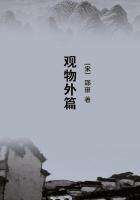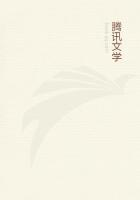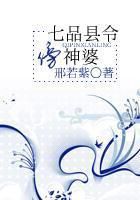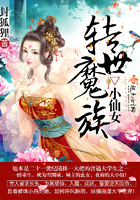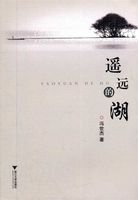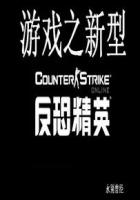Viewed from Mount Vernon Street, the problem of life was as simple as it was classic. Politics offered no difficulties, for there the moral law was a sure guide. Social perfection was also sure, because human nature worked for Good, and three instruments were all she asked -- Suffrage, Common Schools, and Press. On these points doubt was forbidden. Education was divine, and man needed only a correct knowledge of facts to reach perfection: "Were half the power that fills the world with terror, Were half the wealth bestowed on camps and courts, Given to redeem the human mind from error, There were no need of arsenals nor forts." Nothing quieted doubt so completely as the mental calm of the Unitarian clergy. In uniform excellence of life and character, moral and intellectual, the score of Unitarian clergymen about Boston, who controlled society and Harvard College, were never excelled. They proclaimed as their merit that they insisted on no doctrine, but taught, or tried to teach, the means of leading a virtuous, useful, unselfish life, which they held to be sufficient for salvation. For them, difficulties might be ignored; doubts were waste of thought; nothing exacted solution. Boston had solved the universe; or had offered and realized the best solution yet tried. The problem was worked out.
Of all the conditions of his youth which afterwards puzzled the grown-up man, this disappearance of religion puzzled him most. The boy went to church twice every Sunday; he was taught to read his Bible, and he learned religious poetry by heart; he believed in a mild deism; he prayed; he went through all the forms; but neither to him nor to his brothers or sisters was religion real. Even the mild discipline of the Unitarian Church was so irksome that they all threw it off at the first possible moment, and never afterwards entered a church. The religious instinct had vanished, and could not be revived, although one made in later life many efforts to recover it. That the most powerful emotion of man, next to the sexual, should disappear, might be a personal defect of his own; but that the most intelligent society, led by the most intelligent clergy, in the most moral conditions he ever knew, should have solved all the problems of the universe so thoroughly as to have quite ceased making itself anxious about past or future, and should have persuaded itself that all the problems which had convulsed human thought from earliest recorded time, were not worth discussing, seemed to him the most curious social phenomenon he had to account for in a long life. The faculty of turning away one's eyes as one approaches a chasm is not unusual, and Boston showed, under the lead of Mr. Webster, how successfully it could be done in politics; but in politics a certain number of men did at least protest. In religion and philosophy no one protested. Such protest as was made took forms more simple than the silence, like the deism of Theodore Parker, and of the boy's own cousin Octavius Frothingham, who distressed his father and scandalized Beacon Street by avowing scepticism that seemed to solve no old problems, and to raise many new ones. The less aggressive protest of Ralph Waldo Emerson, was, from an old-world point of view, less serious. It was naïf .
The children reached manhood without knowing religion, and with the certainty that dogma, metaphysics, and abstract philosophy were not worth knowing. So one-sided an education could have been possible in no other country or time, but it became, almost of necessity, the more literary and political. As the children grew up, they exaggerated the literary and the political interests. They joined in the dinner-table discussions and from childhood the boys were accustomed to hear, almost every day, table-talk as good as they were ever likely to hear again. The eldest child, Louisa, was one of the most sparkling creatures her brother met in a long and varied experience of bright women. The oldest son, John, was afterwards regarded as one of the best talkers in Boston society, and perhaps the most popular man in the State, though apt to be on the unpopular side. Palfrey and Dana could be entertaining when they pleased, and though Charles Sumner could hardly be called light in hand, he was willing to be amused, and smiled grandly from time to time; while Mr. Adams, who talked relatively little, was always a good listener, and laughed over a witticism till he choked.
By way of educating and amusing the children, Mr. Adams read much aloud, and was sure to read political literature, especially when it was satirical, like the speeches of Horace Mann and the "Epistles" of "Hosea Biglow," with great delight to the youth. So he read Longfellow and Tennyson as their poems appeared, but the children took possession of Dickens and Thackeray for themselves. Both were too modern for tastes founded on Pope and Dr.
Johnson. The boy Henry soon became a desultory reader of every book he found readable, but these were commonly eighteenth-century historians because his father's library was full of them. In the want of positive instincts, he drifted into the mental indolence of history. So too, he read shelves of eighteenth-century poetry, but when his father offered his own set of Wordsworth as a gift on condition of reading it through, he declined. Pope and Gray called for no mental effort; they were easy reading; but the boy was thirty years old before his education reached Wordsworth.

